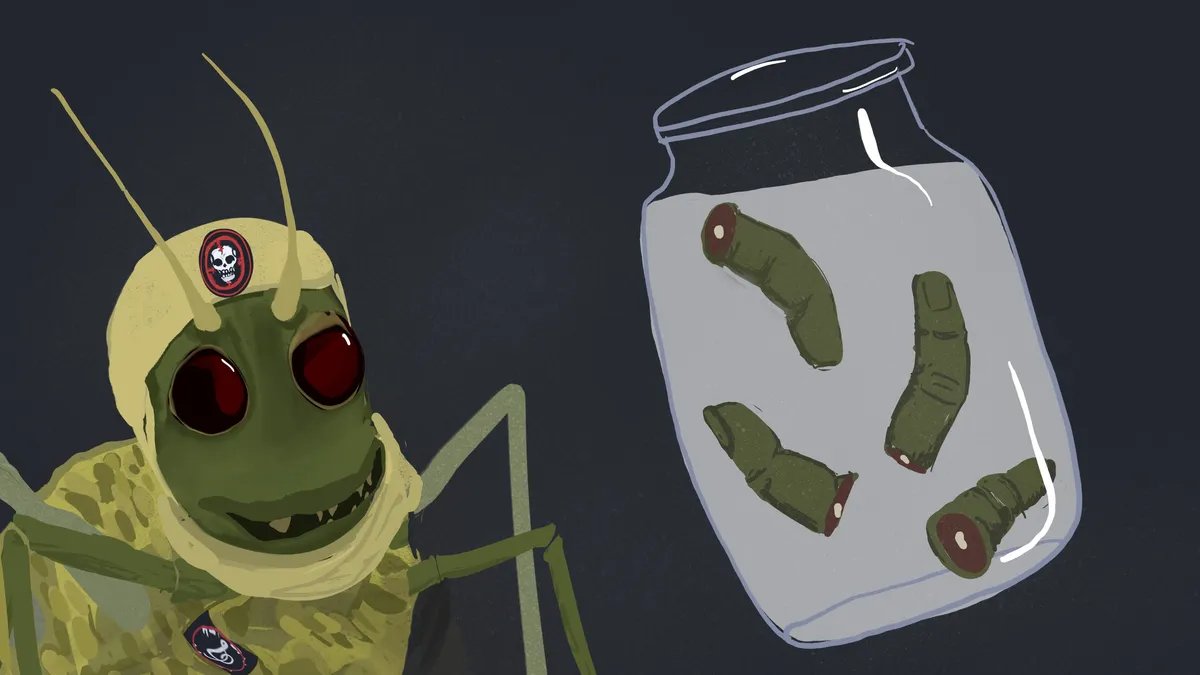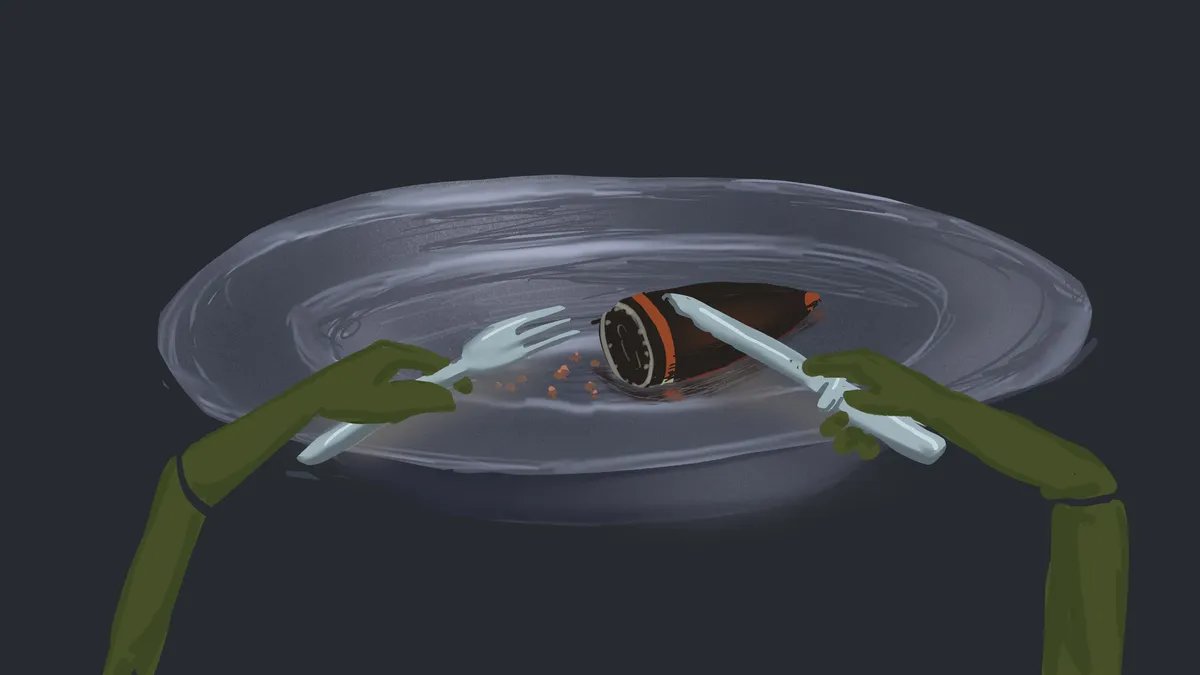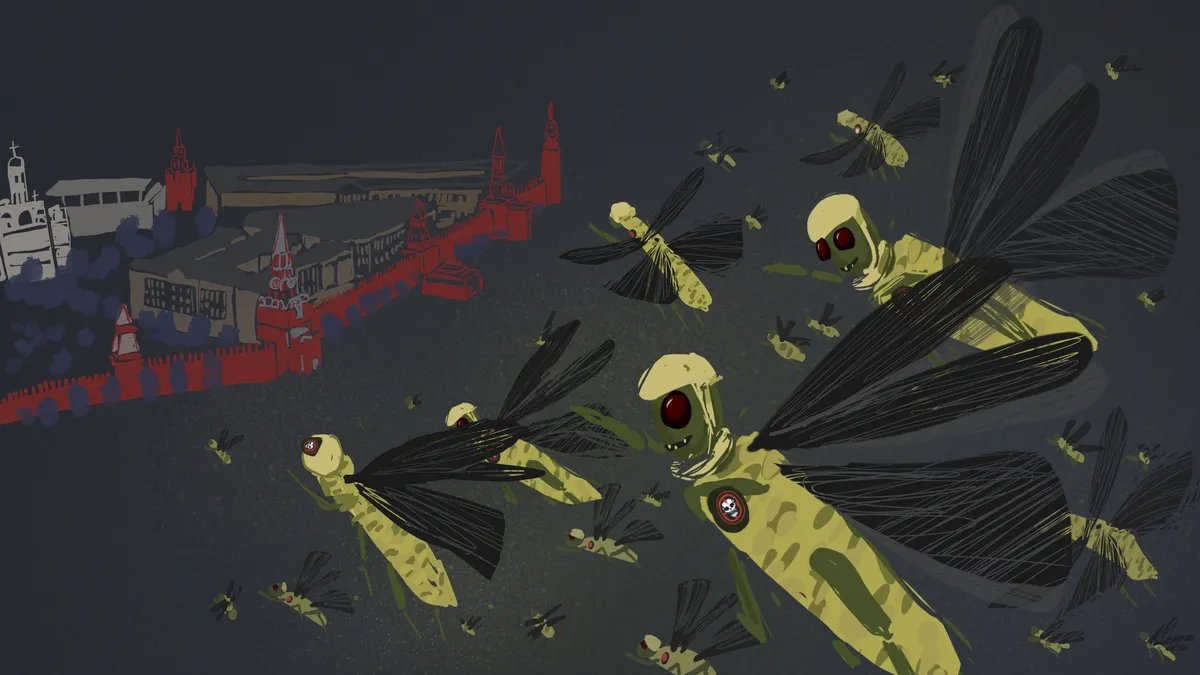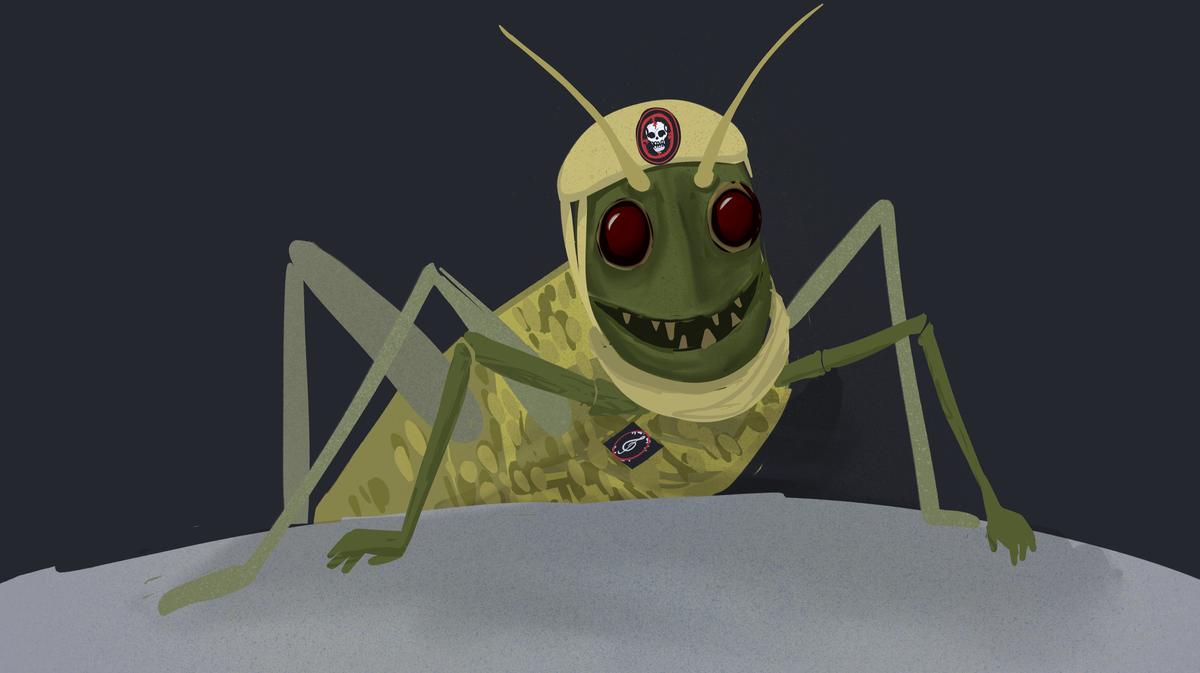Things have been rather quiet for Fyodor Ogarkov (not his real name) since the failure of the June mutiny orchestrated by the late Wagner Group leader Yevgeny Prigozhin. The 34-year-old businessman, father-of-two, and erstwhile Wagner mercenary has found himself on extended leave, during which he agreed to explain to Novaya-Europe how a self-proclaimed patriot who went to fight in Ukraine “for the children” ended up marching on Moscow in an attempt to overthrow Russia’s Defence Minister.
The decision
Ogarkov decided to go to war at the beginning of the year, and applied to the military for a contract. He had been thinking about enlisting to serve in the so-called “special military operation” for a while, he says, clarifying that he had wanted to do so “for the children”.
“I’d been watching broadcasts from Ukraine, with the constant calls to kill Russian children, so that’s what made me decide to go,” he explains, though when asked to cite a case in which Russian children had been slaughtered, he admitted he was unable to. However, there were many examples both on TV and social media, he added.
While awaiting a response from the local draft office, Ogarkov ran into a Wagner Group mercenary on leave. The two struck up a conversation and the mercenary warned him that the lack of discipline in the Russian military itself meant that it would be far preferable to sign up with a paramilitary group. Heeding his advice, Fyodor applied to Wagner, where he quickly discovered that a lack of discipline was definitely not a problem, recalling that a ban on drinking alcohol or using drugs had been enforced so rigorously in his unit that some people had “a finger cut off or were even shot” for alcohol abuse.

Illustration: Alisa Krasnikova, exclusively for Novaya Gazeta Europe
The road to Bakhmut
After joining Wagner, Ogarkov underwent basic training, which he said was conducted in near combat conditions and sometimes led to serious accidents. In one example he cited, an instructor stepped on a mine that hadn’t been deactivated. “He and two conscripts were injured. The instructor, poor guy, already had one prosthetic leg, and now he’s got two.”
After completing basic training, the majority of the mercenaries were assigned to assault units. However, as a university graduate Ogarkov was selected for specialised training and was instructed on how to use a 9K38 Igla surface-to-air defence system, worth some €100,000.
In late February, he was sent to serve in Wagner’s anti-aircraft artillery regiment in the fiercely contested town of Bakhmut, which by that point had been almost completely destroyed.
During his time on the frontline there, Ogarkov said he discovered that the Russian military did indeed lack discipline, as he had been warned, but that it also lacked competent commanders. Poorly thought-through orders to attack fortified areas without proper artillery support coupled with a chronic shortage of ammunition all led to huge losses that could easily have been prevented, Ogarkov argues, calling what he saw “a Russian genocide”. He soon came to have no doubt in his mind that marching on Moscow to replace Russian Defence Minister Sergey Shoigu was the only solution.
The Bakhmut meat grinder
All of Wagner’s new recruits are immediately informed of three main rules: no alcohol or drugs, no mobile phones, and no communication with the locals.
Recruits are warned that given locals often sympathise with Ukraine, a friendly grandmother bringing troops some warm food could also simultaneously give up the unit’s location to the Ukrainian Armed Forces, which would quickly initiate a missile strike.
Wagner’s own air defence, the Igla systems as well as mobile surface-to-air Osa and Pantsir missile systems, covered the group’s positions from the air. Fyodor’s task was to cover assault teams from enemy helicopters and cruise missiles, for shooting down either of which he’d be entitled to a 1.5-million-ruble bonus (€14,750).
In urban warfare conditions, Wagner’s strategy was to use assault teams with artillery air cover. These units moved through the city’s streets, calling in the artillery whenever they discovered an enemy stronghold. After the artillery struck at enemy positions, the ground troops, many of them recruited from Russian prisons, were sent in to clear the site.
At least, this is what happened on the days when there was ammunition. However, the extreme shortage meant that the troops often had no artillery support. According to Ogarkov, most of the convicts recruited to Wagner in February and March this year were dead within six months.
Ogarkov blames the chronic ammunition shortage on Russian Defence Minister Sergey Shoigu, who, he says, effectively transformed the Russian military into a force whose only concern was being photographed for reports to placate the powers that be.

Illustration: Alisa Krasnikova, exclusively for Novaya Gazeta Europe
Ogarkov notes that Russian military units were often positioned in woodland, without being given orders of receiving concrete military objectives. Soldiers often weren’t even informed when other Russian units were a short distance away, Ogarkov recalls, leading to repeated incidents of friendly fire.
All the while, artillery attacks by the Ukrainian armed forces continued to devastate Russian troop numbers. “Two weeks later, a whole platoon was just gone!” Fyodor remembers, adding that the needless loss of life he witnessed on a daily basis made him realise that something had to be done.
Indignation at the Defence Ministry’s commanders certainly appears to have overshadowed Ogarkov’s original distress about Russian children being killed in Ukraine, something he never mentioned again during our conversations, saving all his vitriol for Shoigu, who he believes should be relieved of his duties immediately.
Ogarkov maintains that the Wagner rank-and-file were never against Putin, and even trots out the “good tsar, evil advisers” argument when he says that Shoigu ensured the Russian president didn’t receive accurate information about the course of the war.
When the order to march on Moscow came in then, Ogarkov says he didn’t hesitate for even a moment.
Marching on the capital
“In the car, we discussed what would happen, how we might end up being seen, as terrorists or rebels?” Ogarkov says when describing his feelings during the march on Moscow, conceding that “there was some fear”.
His chief fear was bloodshed — specifically that he’d be forced to shoot at his own.
He and his unit learned about the so-called March for Justice “a little bit in advance”, Ogarkov says, though he refused to say exactly when and from whom he had received the information. By contrast, however, his unit had not heard about the missile strike on a Wagner camp that served as the formal pretext for the mutiny, despite Wagner chief Yevgeny Prigozhin claiming that the strike had resulted in “huge losses” in a message posted at 9:09 PM on 23 June in which he announced the march.
“Personally, I have no reason not to trust Prigozhin,” says Ogarkov, adding that the sole aim of the mutiny was to get rid of Shoigu.
In the early afternoon of 24 June, while en route to Voronezh from Rostov-on-Don, where Wagner troops coalesced ahead of their march, Ogarkov saw the burnt out remains of an Ural military truck that belonged to Wagner on the roadside. He realised then that Russian forces had fired an unguided rocket at the truck from a helicopter. He would later find out that about 30 people were killed, though, he says, the media didn’t report on the incident.
After that strike, Wagner’s commanders began screaming orders over the radio to “fire at anything in the sky”, Ogarkov recalls, saying that while he didn’t want to fire at his compatriots, “how do you not open fire when you’re being fired at?”
The Wagner convoy proceeded towards Moscow under a Russian flag but with no Wagner insignia on display. Despite that, people must have known from the news that the convoy was Wagner, Ogarkov says. “I can’t even describe how fully we were supported by the people! If we had been allowed to have phones, I’d have taken videos,” he smiles.
On their way to Moscow, Fyodor saw scores of people taking videos of the convoy and screaming words of encouragement.
“Wagner power!”, “Good job, guys! Let’s go!”, “Just be careful” are some of the cheers that Ogarkov remembers hearing. “Had we made it to Moscow, we’d have been met with the same energy. We saw 100% support.”

The order to stand down
After the failure of the mutiny, many Wagner fighters clung on to the hope that Putin would at least replace “that bastard Shoigu”, Ogarkov says, but nothing changed. He didn’t even consider signing a contract with the Defence Ministry, and as the National Guard also wasn’t to his tastes, Fyodor took his leave and returned to his family near Moscow.
“I’m not suicidal, I’d like to remain alive, so I won’t be joining the Defence Ministry,” says Fyodor, adding that his opinion is one shared by many former Wagnerites.
Although his contract with Wagner has now expired, Ogarkov still expects to be called back at some point. Thousands of Wagner fighters like him are stuck in a limbo, he says, where could they all have gone? Some were welcomed in Belarus, but Ogarkov doesn’t understand what there could be for them to do there. Likewise, he has no interest in being deployed to Africa, citing the climate and the smaller paycheck on offer to Wagnerites there. As a result, Ogarkov says he doesn’t expect to return to Wagner until it’s preparing fresh units for deployment in Ukraine.
Ogarkov suddenly stopped communicating with Novaya-Europe on 23 August, only to send an audio message on 12 September in which he said that pending ongoing negotiations with the Defence Ministry on the matter, the Wagner Group would soon be returning to both Ukraine and Africa.
Join us in rebuilding Novaya Gazeta Europe
The Russian government has banned independent media. We were forced to leave our country in order to keep doing our job, telling our readers about what is going on Russia, Ukraine and Europe.
We will continue fighting against warfare and dictatorship. We believe that freedom of speech is the most efficient antidote against tyranny. Support us financially to help us fight for peace and freedom.
By clicking the Support button, you agree to the processing of your personal data.
To cancel a regular donation, please write to [email protected]

